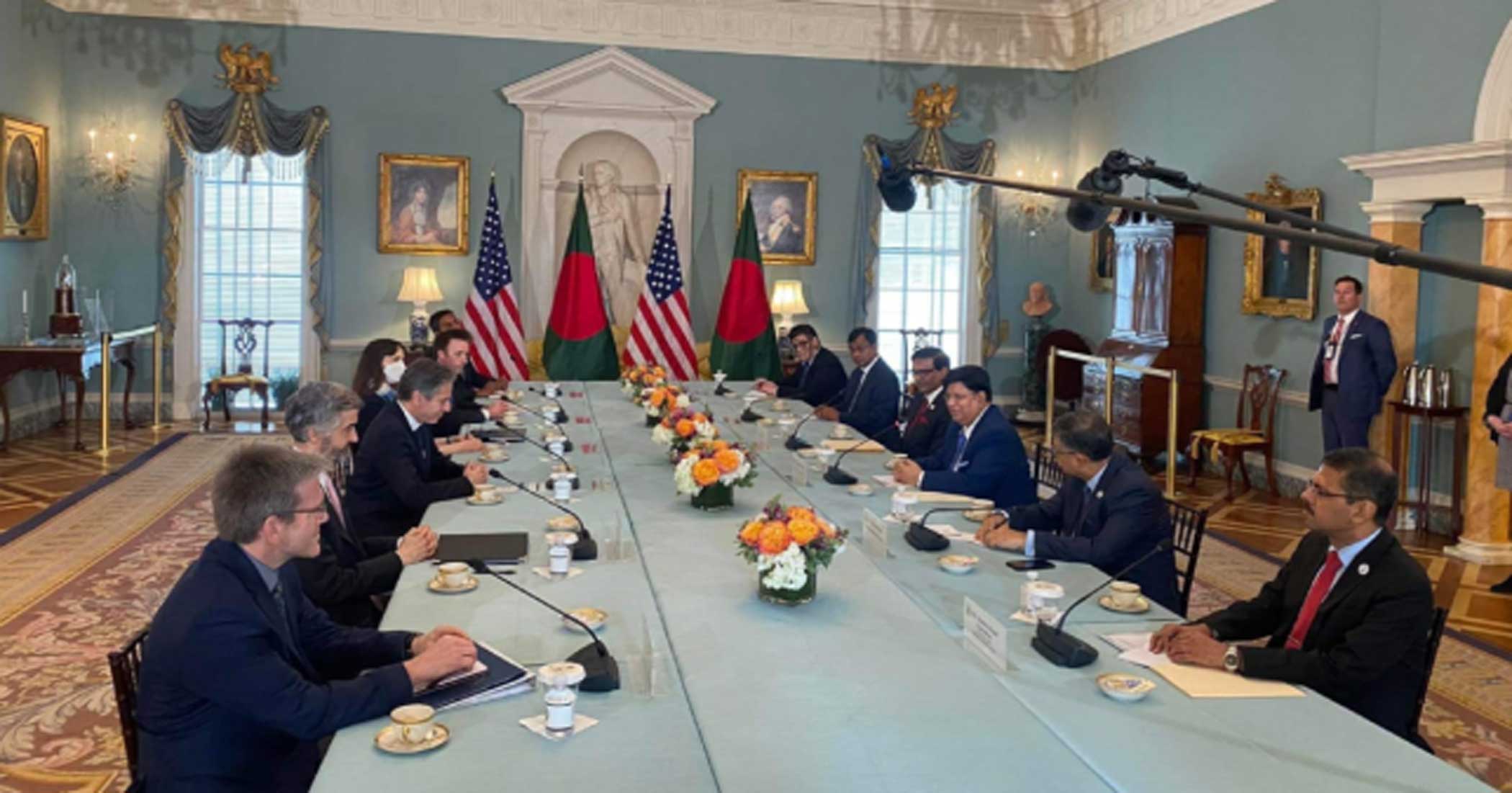
By Ashis Biswas
For Bangladesh, an inexorable decline of its economy during the last couple of years has added to the present tensions it faces in its uneasy relationship with the US. This has rendered the position of the ruling Awami League (AL) politically more vulnerable as it continues its pre-election campaign for the 2024 Parliamentary elections.
From the tone of the present rhetoric of spirited debates on the Bangladeshi electronic media and articles written by specialists/experts, it is generally accepted that the US-led bloc of western countries are unhesitatingly backing the opposition anti-AL campaign. Repeated visits by Western diplomats/leaders to Bangladesh in recent months, usually urging upon the AL government to adopt more ’transparent ‘ measures to ensure a free and fair elections , are only one indication of their barely concealed distrust about the AL-run administration.
Significantly, the thrust of the so-called ‘liberal’ Western criticism of recent administrative decisions taken in Bangladesh even focuses on issues not overtly political : Examples: the official handling of the demands raised by garments industries workers agitating for higher pay or the GoB’s continuing running battle against the economic projects and policies of Dr Mohammad Yunus, Nobel laureate economist.
Not surprisingly, ruling AL leaders/Ministers have reacted sharply, seeing in such moves nothing short of a direct interference in the domestic politics/governance in Bangladesh ! GoB has felt it necessary to warn serving diplomats that sponsoring/participating in such activities do not necessarily form part of time-honoured diplomatic conventions.
No wonder some observers feel that at present, when a handful of Bangladeshi officials have already been placed under US-imposed sanctions, it seems as though nothing that the ruling AL does will be seen in a positive light by mainstream Western liberal press. The general consensus in the West is that regardless of official pronouncements and assurances given in Dhaka about the coming elections, the opposition narrative must be accepted in its entirety.
The broad political message sent out by the Bangladesh Nationalist Party (BNP)-led opposition is that the AL has always rigged elections, by resorting to widespread intimidation /violence in its campaign to ensure its well publicised poll ‘victories’. Ironically exactly similar allegations were voiced against the BNP during its own earlier election victories.
In broad terms, the ‘corrupt’ AL stands accused of rigging elections and marginalising its opponents by violence: as for the BNP , it is attacked for its pro-Pakistan aggressive Islamist approach , together with a high dose of corruption and opportunism.
The diplomatic establishment in Dhaka stands sharply divided in this situation : almost predictably, while the US and EU countries have turned critical of the AL, Bangladesh’s major regional/nearer neighbours like China, Russia and India have been far more supportive of the ruling AL government. Russia and China have strongly denounced open interference and pressure tactics adopted by the US and its allies in the internal affairs of Bangladesh.
In sharp contrast, apart from their involvement in Bangladesh’s domestic political developments, Russia, China and India have materially helped the country to grow into a strong economy over the years. These countries unlike the West have helped Bangladesh, financially and technologically through short and long term projects — but also unconditionally!
Nevertheless, with Bangladeshi forex reserves currently reduced to around $19 billion only — $16.5 billion by International Monetary Fund’s (IMF) estimates — the ruling AL finds its strongest claim to success as a ruling party, gradually collapsing in the critical pre-poll months. The recent economic progress seen in Bangladesh during the AL’s tenure, with Bangladesh surpassing India in terms of GDP per capita income growth, was naturally highlighted by its leaders as a high point of achievement.
Now suddenly there are disturbing questions regarding such claims. It is common knowledge that reasons for the sudden signs of an economic decline in Bangladesh, in the post Covid pandemic and Ukraine war era, are well beyond Bangladesh’s control. The national currency Taka has declined vis-à-vis the strong US dollar (officially 1 dollar equals 110.5 Taka but unofficially the going rate is well over 120, which encourages illegal Hundi transactions in the Remittance earnings sector, impacting official revenue collection).
Dhaka-based policymakers are also worried about present export trends, with a sharp decline is garments exports to the US in recent months: For all its efforts to expand its base of exports internationally, over 90% of Bangladeshi export earnings still come from the garments sector. And around 95% of such earnings come from the US and EU countries! Whenever restrictions have been imposed in the US over the use of child labour of the exploitation of women in Bangladesh garment-producing units, the impact has been felt severely in the country’s economy as a whole.
Clearly, while no one comments publicly on the many underlying political/economic compulsions in the situation prevailing in Bangladesh prior to the general elections, policy planners in and out of power have to tread carefully in the exercise of diplomacy vis-a-vis the West. (IPA Service)
The post American And Western Diplomats Are Openly Supporting Opposition In Bangladesh first appeared on Latest India news, analysis and reports on IPA Newspack.


